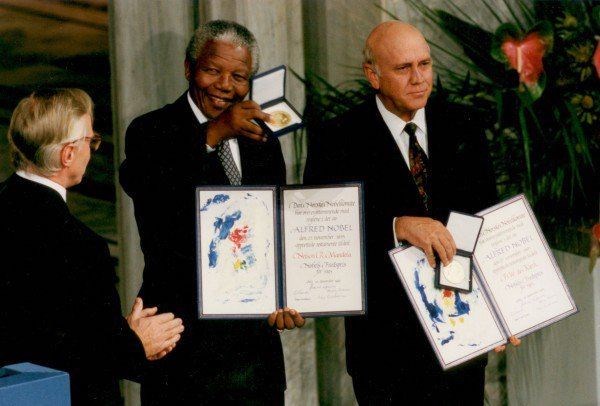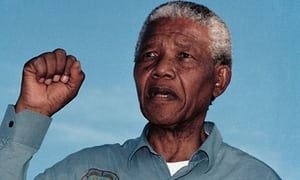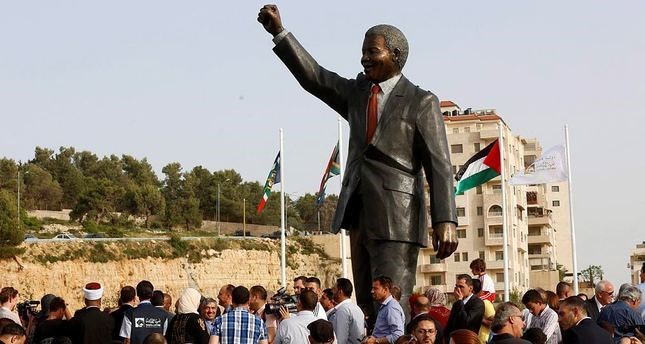“A hero is someone who has given his or her life to something bigger than oneself” (Campbell 2), American mythologist Joseph Campbell explains, attempting to exemplify the true meaning of heroism. It is common to believe that heroism is about selflessness, but there’s more to it. Above and beyond dedicating oneself to others, heroes are willing to sacrifice their social status, family, friends, and personal freedoms without regard to any personal suffering. A hero will take significant risks in order to steadfastly serve others and represent a beacon of hope. Another definition of a hero can be that, “Heroes arrive when we need them most” (Granger 4) according to David Granger, who explains that heroes are always there for us. Heroism can be found anywhere, from donating blood, to fighting off a bully, and helping the homeless. Heroism takes courage. Heroism takes determination. And in order to accomplish what they set out to do, heroes possess an overriding internal motivating force or drive that enables them to bravely persevere. In demonstrating courageous determination, heroes inspire others and mobilize their supporters. When merged these traits make up the perfect recipe for a hero that has a positive effect on the lives of the people around him.
 Mandela receiving his well-deserved Nobel Peace Prize alongside his main man F.W. Klerkhttps://www.awesomestories.com/asset/view/Mandela-and-de-Klerk-Share-Nobel-Peace-PrizeThroughout history, there are many examples of people who have risked their lives for a cause greater than themselves. One of the most impactful and inspirational examples is Nelson Mandela, who through personal sacrifice, courage, and resiliency, led the way to end apartheid for South Africa. Nelson Rolihlahla Mandela was born on the 18th of July, 1918 in Mvezo, South Africa, he was the son of a tribal chief and grew up wanting to be a lawyer. During his first job as an attorney, a friend of his, Walter Sisulu, convinced him to join the African National Congress (ANC), an organization formed to bring all Africans together as one people to defend their rights and freedoms in South Africa and organize against apartheid, a system of institutionalized racial segregation and discrimination. Mandela played a vital part in the fight for freedom for which he was awarded the Nobel Peace Prize for in 1993. In 1962 Mandela was captured and put in prison for 27 years on Robben Island and Pollsmoor Prison. Later Mandela was released and continued his goal of eliminating apartheid. When Mandela was the leader of the ANC made a lot of decisions that his people and co-workers did not agree with, but he executed them regardless because he knew it was for the better. And even when he had to spend those 27 hard years in jail he did not give up his dream of a free South Africa and fought on. Overall, Nelson Mandela poses as the best candidate for an inspiration due to his heroism shown by ridding the apartheid that overcame his homeland of South Africa, but he was only able to achieve this grand feat because of his rallying leadership and endless pursuit of freedom.
Mandela receiving his well-deserved Nobel Peace Prize alongside his main man F.W. Klerkhttps://www.awesomestories.com/asset/view/Mandela-and-de-Klerk-Share-Nobel-Peace-PrizeThroughout history, there are many examples of people who have risked their lives for a cause greater than themselves. One of the most impactful and inspirational examples is Nelson Mandela, who through personal sacrifice, courage, and resiliency, led the way to end apartheid for South Africa. Nelson Rolihlahla Mandela was born on the 18th of July, 1918 in Mvezo, South Africa, he was the son of a tribal chief and grew up wanting to be a lawyer. During his first job as an attorney, a friend of his, Walter Sisulu, convinced him to join the African National Congress (ANC), an organization formed to bring all Africans together as one people to defend their rights and freedoms in South Africa and organize against apartheid, a system of institutionalized racial segregation and discrimination. Mandela played a vital part in the fight for freedom for which he was awarded the Nobel Peace Prize for in 1993. In 1962 Mandela was captured and put in prison for 27 years on Robben Island and Pollsmoor Prison. Later Mandela was released and continued his goal of eliminating apartheid. When Mandela was the leader of the ANC made a lot of decisions that his people and co-workers did not agree with, but he executed them regardless because he knew it was for the better. And even when he had to spend those 27 hard years in jail he did not give up his dream of a free South Africa and fought on. Overall, Nelson Mandela poses as the best candidate for an inspiration due to his heroism shown by ridding the apartheid that overcame his homeland of South Africa, but he was only able to achieve this grand feat because of his rallying leadership and endless pursuit of freedom.
Throughout Mandela’s life, he got put in the spotlight to lead people, and his strong leadership rallied the South Africans to join the battle for freedom and grow a new era. Throughout his time as a leader, Mandela had to make tough decisions; “As a leader, one must sometimes take actions that are unpopular, or whose results will not be known for years to come.” (Mandela 341). Mandela reminds us that true leaders must exhibit visionary thinking which others may not always understand and, therefore, may not agree with. If Mandela wasn’t as wise of a leader as he was, he wouldn’t have been able to progress South Africa and improve their living conditions. Though, his decisions were sometimes met with uncertainty and doubt, but he was not to be deterred. Mandela had to take risks as a leader pioneering unexplored paths in his effort to bring justice to the people of South Africa. Even when the very same people he was trying to help were skeptical about Mandela’s actions, he never lost sight of his mission to end apartheid. Mandela understood the responsibilities that came with being a leader, “Like the gardener, a leader must take responsibility for what he cultivates; he must mind his work, try to repel enemies, preserve what can be preserved, and eliminate what cannot succeed”(Mandela 271). Mandela tells us what a leader does through his analogy to how a gardener tends his garden. And how one must take responsibility for his decisions, be mindful of what is working well, and be open to learning from the mistakes. He compares gardening to being a leader since they both require huge responsibility, an absence of naivety, and a willingness to scrap the mistakes, no matter who/what caused them. Throughout his years of leading the ANC and South Africa, Mandela would make mistakes that he had to take the blame for, he had to repel the weeds that prevented forward progress, preserve the healthy and strong assets, and sometimes extinguish the weak ones. Setting aside ego or personal gain enabled him to stay on course and ultimately accomplish his goal of creating a just and hopeful future. Overall it was Mandela’s leadership that rallied and saved South Africa in the challenging fight against apartheid.
 Mandela showing passionhttps://www.theguardian.com/world/2013/dec/07/nelson-mandela-freedom-fighter-john-carlinMandela’s everlasting quest for a free South Africa displays his commitment to prevent others from feeling the immense pain and injustice that people have went through throughout history and kept him on course to achieve his dream of a free South Africa. In Mandela’s life he faced many injustices, and ultimately, he explained,, “I had no epiphany, no singular revelation, no moment of truth, but a steady accumulation of a thousand slights, a thousand indignities and a thousand unremembered moments produced in me an anger, a rebelliousness, a desire to fight the system that imprisoned my people” (Mandela 82). He refers to the build-up of prejudices that caused him to want to fight the long history of systems built around injustice. He says this to emphasize that the fire building up inside of him didn’t just appear but rather accumulated gradually, little by little until he could no longer live knowing others were facing injustices as well. Mandela’s pursuit of freedom was relentless and he justifies why. The constant encounters with injustice built up a fire so strong that there was nothing he could do except earn freedom for the future of South Africa. Mandela’s race to freedom was not smooth and the most notable roadblock was his unfortunate imprisonment. The British understood how vital he was to the South African cause, and to obviate this, “The government began to offer him his freedom in exchange for conditions--renouncing violence or going into exile. Mandela, stubborn and patient as he has been throughout his life, refused any conditions” (Biography Today 15). The British government attempted to grant him his freedom as long as a few unfavorable conditions were set in place. Even though Mandela would have been released from prison, he refused the offer knowing he must continue to stand up for what he believed. Mandela was so invested in the battle against apartheid that he was willing to give his own freedom as a “sacrifice” to make sure the South Africans were able to continue the fight. He showed that sometimes your personal desires need to be abandoned to earn the right to a better world. Mandela’s chase for freedom was relentless because of all the injustices he faced, and it helped him achieve his goal of a free South Africa.
Mandela showing passionhttps://www.theguardian.com/world/2013/dec/07/nelson-mandela-freedom-fighter-john-carlinMandela’s everlasting quest for a free South Africa displays his commitment to prevent others from feeling the immense pain and injustice that people have went through throughout history and kept him on course to achieve his dream of a free South Africa. In Mandela’s life he faced many injustices, and ultimately, he explained,, “I had no epiphany, no singular revelation, no moment of truth, but a steady accumulation of a thousand slights, a thousand indignities and a thousand unremembered moments produced in me an anger, a rebelliousness, a desire to fight the system that imprisoned my people” (Mandela 82). He refers to the build-up of prejudices that caused him to want to fight the long history of systems built around injustice. He says this to emphasize that the fire building up inside of him didn’t just appear but rather accumulated gradually, little by little until he could no longer live knowing others were facing injustices as well. Mandela’s pursuit of freedom was relentless and he justifies why. The constant encounters with injustice built up a fire so strong that there was nothing he could do except earn freedom for the future of South Africa. Mandela’s race to freedom was not smooth and the most notable roadblock was his unfortunate imprisonment. The British understood how vital he was to the South African cause, and to obviate this, “The government began to offer him his freedom in exchange for conditions--renouncing violence or going into exile. Mandela, stubborn and patient as he has been throughout his life, refused any conditions” (Biography Today 15). The British government attempted to grant him his freedom as long as a few unfavorable conditions were set in place. Even though Mandela would have been released from prison, he refused the offer knowing he must continue to stand up for what he believed. Mandela was so invested in the battle against apartheid that he was willing to give his own freedom as a “sacrifice” to make sure the South Africans were able to continue the fight. He showed that sometimes your personal desires need to be abandoned to earn the right to a better world. Mandela’s chase for freedom was relentless because of all the injustices he faced, and it helped him achieve his goal of a free South Africa.
 Nelson Mandela Statue in Ramallah, Palestinehttps://www.dailysabah.com/mideast/2016/04/26/palestinians-unveil-6-meter-nelson-mandela-statue-in-ramallahBecause of his rallying leadership and endless pursuit of freedom, Mandela was able to rid the apartheid that was present in South Africa, thus making him an inspiration to others. Overall Mandela’s leadership and pursuit for freedom didn’t just get him out of tough situations, he was willing to risk putting himself in these situations for the greater good. He put not only his social status, but his personal freedom on the line for South Africa and was willing to take on the treacherous task of leading the South Africans to freedom. As said before, Mandela risked his life, everything he had worked so hard on for what he believed was right. Mandela essentially gave “his life” for “something bigger than” himself. He gave up his own personal freedom for the rights of South Africa. In “Glory and Hope” he says, We have succeeded in the effort to implant hope in the breasts of the millions of our people. He’s done exactly that, he’s given hope to everyone that deals with any sort of prejudice and injustice. His ideals give us reason to keep fighting because that’s what Mandela stood for. In terms of world peace, there are 3 names you have to know, Mandela, Gandhi, and King Jr. All three of them fought for different causes but in the end all had the same effect on their people. I personally connect to Mandela due to how close South Africa’s story is to the story of my home country, Palestine. Everyone’s heard of the Israel and Palestine conflict, to which I’ve had a first hand experience with. I was in the country when gunshots were being exchanged no less that a few miles from my location. The people of Palestine look up to Mandela because of how he was able to reclaim the land that was once South Africa’s. From our point of view, the situation is very similar to how the British took South Africa. His achievements represent our goals so much that there is a statue of him in one of our biggest cities. His story gives me and the people of Palestine hope and for that reason, he inspires all of us to non-violently fight for what we believe is ours. Mandela has had an enormous impact on the world because of his admirable traits and outstanding achievements that cement him as a true hero and an inspiration to all.
Nelson Mandela Statue in Ramallah, Palestinehttps://www.dailysabah.com/mideast/2016/04/26/palestinians-unveil-6-meter-nelson-mandela-statue-in-ramallahBecause of his rallying leadership and endless pursuit of freedom, Mandela was able to rid the apartheid that was present in South Africa, thus making him an inspiration to others. Overall Mandela’s leadership and pursuit for freedom didn’t just get him out of tough situations, he was willing to risk putting himself in these situations for the greater good. He put not only his social status, but his personal freedom on the line for South Africa and was willing to take on the treacherous task of leading the South Africans to freedom. As said before, Mandela risked his life, everything he had worked so hard on for what he believed was right. Mandela essentially gave “his life” for “something bigger than” himself. He gave up his own personal freedom for the rights of South Africa. In “Glory and Hope” he says, We have succeeded in the effort to implant hope in the breasts of the millions of our people. He’s done exactly that, he’s given hope to everyone that deals with any sort of prejudice and injustice. His ideals give us reason to keep fighting because that’s what Mandela stood for. In terms of world peace, there are 3 names you have to know, Mandela, Gandhi, and King Jr. All three of them fought for different causes but in the end all had the same effect on their people. I personally connect to Mandela due to how close South Africa’s story is to the story of my home country, Palestine. Everyone’s heard of the Israel and Palestine conflict, to which I’ve had a first hand experience with. I was in the country when gunshots were being exchanged no less that a few miles from my location. The people of Palestine look up to Mandela because of how he was able to reclaim the land that was once South Africa’s. From our point of view, the situation is very similar to how the British took South Africa. His achievements represent our goals so much that there is a statue of him in one of our biggest cities. His story gives me and the people of Palestine hope and for that reason, he inspires all of us to non-violently fight for what we believe is ours. Mandela has had an enormous impact on the world because of his admirable traits and outstanding achievements that cement him as a true hero and an inspiration to all.
Page created on 2/26/2018 12:45:23 AM
Last edited 2/26/2018 1:05:46 AM
